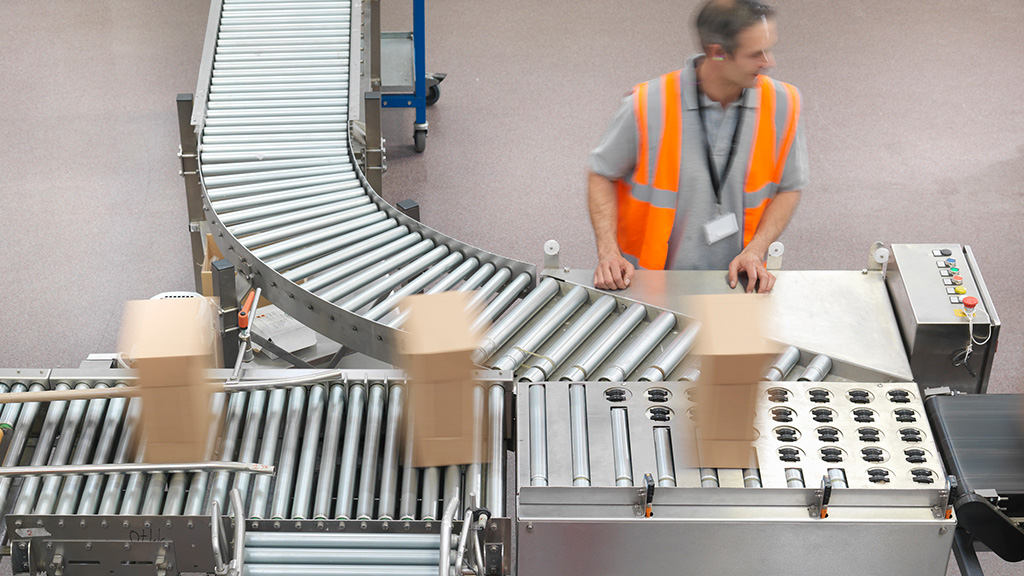Solutions
Double click here to edit new New Header component
-
Solutions
-
SOLUTIONS
Barclays Investment Bank offers advisory, finance and risk management services that connect your ideas to capital and power possibilities.
-
-
Insights
-
INSIGHTS
View thought-leading perspectives from Barclays Investment Bank’s financial experts and Research analysts.
-
-
News and Events
-
News and EventsNEWS AND EVENTS
Get the latest news about Barclays Investment Bank businesses, people and our work in the community, as well as our upcoming events and conferences.
-
- Contact Us
-
Client Login
- Barclays Live
- BARX
Client Login
Parsys 1
Parsys 2
New technology is changing our work and social lives at unprecedented speed and intensity.
Leaps in technological advancement are nothing new, and innovation often results in incredible step changes in the home and the workplace: the printing presses of the 1400s widened access to books (and therefore knowledge) for the first time; the Industrial Revolution’s mechanisation led to an explosion in both industrial output and urbanisation; cars, aeroplanes and the internet have connected people around the world like never before.
Now, however, there is a perception that technology has advanced so far and machines are learning so quickly that the concept of ‘human work’ itself is under threat. Are we on the verge of losing millions of jobs to robots, and if we are, what does it mean for the future of human work?
Machines are ascendant – but don’t discount humans
Current advances in Artificial Intelligence and machine learning are being made possible through the confluence of three powerful tech-driven events: the rapid digitisation of the economy, which is creating trillions of gigabytes of data every year (and rising); the plummeting cost of storing all that data; and an explosion in ever cheaper, ever more powerful computing power.
Historical technological breakthroughs often succeeded in eliminating back-breaking and repetitive tasks, allowing us to spend our time and energy on more ‘worthwhile’ activities. Now advances in Artificial Intelligence mean machines are increasingly imitating humans in how they think and act, and are increasingly involved in work that has been exclusively done by people.
However, we don’t believe that robots will completely replace humans in the workplace any time soon. Crucially, people retain the upper hand over machines in two important ways:
Preparing for change
Innovation continues to improve human lives, but technological advances do not always have an unambiguously positive impact.
We’ve learned from history that the application of new technology often leads initially – counter intuitively – to lower productivity, depressed wages and disrupted industries. We argue in Delayed expectations: automation, productivity and wages that the true effects of new, groundbreaking technologies often take decades to improve productivity.
It takes time for economies of scale to kick in on the production side, for consumer behaviour to adapt, for companies using the technology to refine or even change their business models. While business and society catch up, productivity tends to lag, despite relatively low unemployment figures.
Governments, institutions and society at large should all be preparing for the potential economic fall-out by seeking solutions to mitigate the effects of disruption and job and wage polarisation. The concept of a universal minimum income, for example, is currently hotly debated, while taxation on robots has also been proposed by such luminaries as Bill Gates.
The debate around possible solutions will likely continue for years to come. Historically, society has always found a way to adapt to both the beneficial and the challenging effects of technological change. We believe that people will successfully navigate the current period of technological change as they have in previous periods of technological advancement throughout history.
Parsys 3
Related content
Read 'Robots at the gate' (PDF, 3MB)
Download the third report in Barclays' Impact Series
Delayed expectations: Automation, productivity and wages
Machine learning and AI are having puzzling effects on wages, productivity and unemployment.
Infographic: Will robots take our jobs?
Machines are learning to do increasingly complex tasks. Will people be replaced by technology in the workplace anytime soon?
Parsys 4
About the analysts
Ajay Rajadhyaksha is a Managing Director and Head of Macro Research at Barclays, based in New York. He oversees the global research and strategy efforts of the economics, rates, FX, commodities, emerging markets, securitised, and asset allocation teams. Since joining Barclays in 2005, Mr. Rajadhyaksha has held various positions, including Co-Head of FICC Research and before that, Head of US Fixed Income Research and US and European Securitised Research.
Previously, he worked at Bear Stearns, where he started in Mortgage Strategy before moving to the Interest Rate Derivatives Strategy team. Mr. Rajadhyaksha received a bachelor’s degree in Electronics Engineering from the University of Mumbai, an MBA from the Indian Institute of Management Calcutta and a master’s degree in International Management from Thunderbird, the American Graduate School of International Management in Arizona.
Aroop Chatterjee is a Director and Head of FX and EM Macro Strategy, Americas and is based in New York. At Barclays since 2007, his previous roles include Head of European and LatAm Local Markets Strategy and Head of FX Quantitative Strategy. Mr. Chatterjee’s research focuses on top-down macro and quantitative strategy and their application to FX and EM rates markets. He holds an MBA from the University of Chicago Graduate School of Business and a bachelor’s degree in Materials Science & Engineering and Economics from Northwestern University.
Read the full report
Download the full report, Robots at the gate: Human and technology at work (PDF, 3MB) for further analysis from Barclays’ Impact Series.
Access the original research report
Authorised clients of Barclays Investment Bank can also log in to Barclays Live to read in-depth analysis on this theme as published in the 63rd annual edition of Barclays’ Equity Gilt Study.
Parsys 5
Parsys 6
Parsys 7
Parsys 8
Parsys 9
Parsys 10
Parsys 11
Parsys 12
Parsys 13
Parsys 14
Parsys 15
Parsys 16
Parsys 17
Parsys 18
Parsys 19
Parsys 20
iParsys for Double Pixel component


